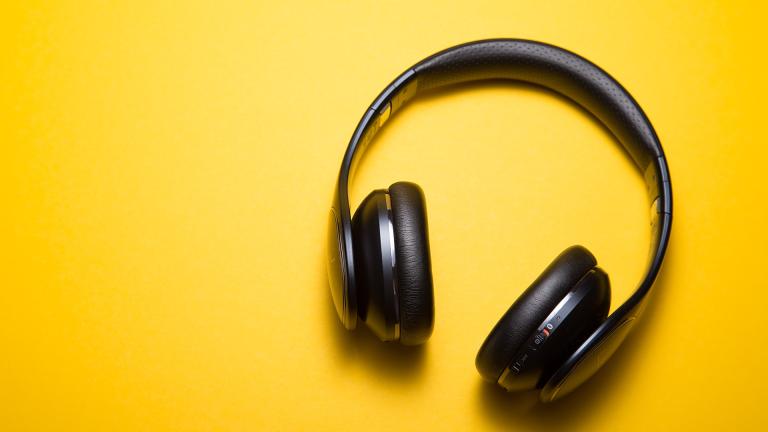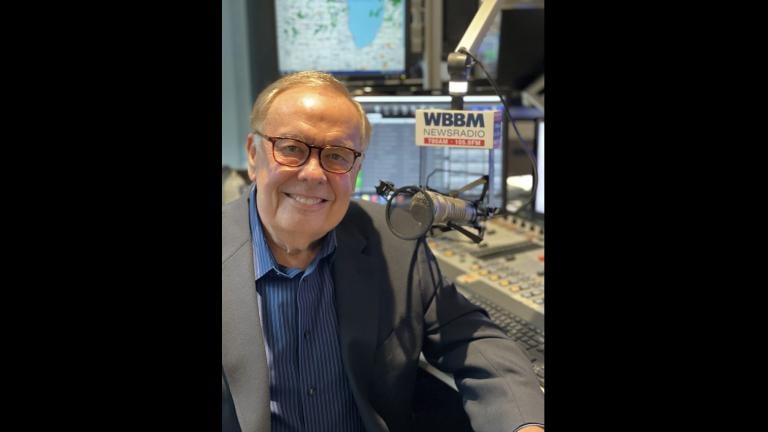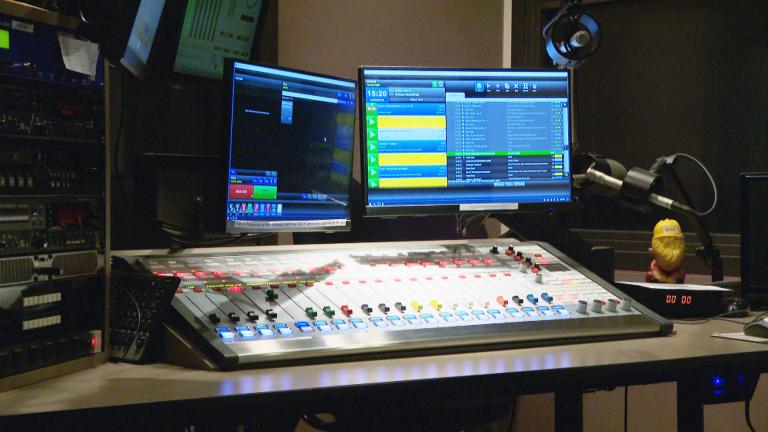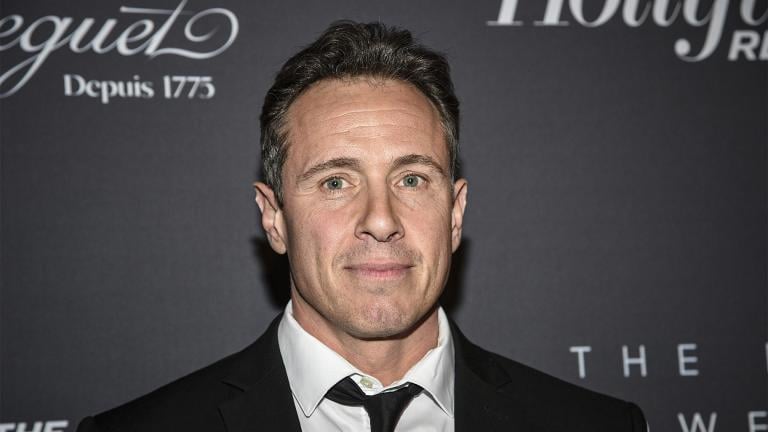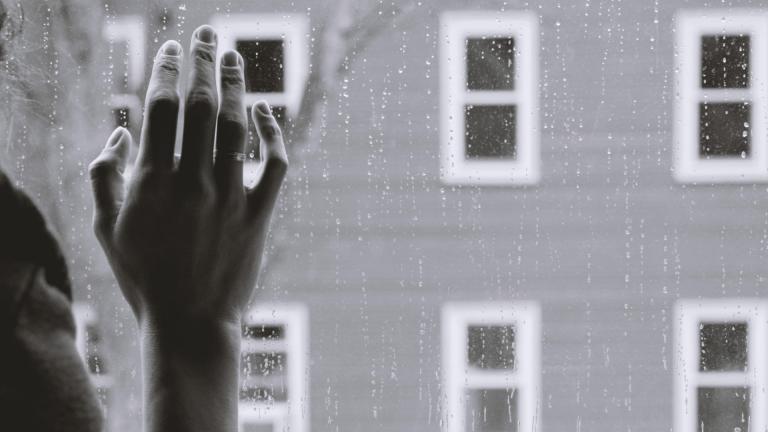Alex Jones is one of America’s most heard, read and watched conspiracy theorists – on YouTube, he had 2.4 million subscribers and billions of video views.
But he has now been banned from YouTube (owned by Google), Apple, Facebook and Spotify, and the majority of his content has been removed from those sites.
Among his infamous claims, Jones says the U.S. government was involved in the 1993 bombing of the federal building in Oklahoma City and the Sept. 11 terrorist attacks on the World Trade Center’s twin towers and the Pentagon.
In 2016, Jones told his viewers and listeners that Hillary Clinton was part of a child sex trafficking ring dubbed “Pizzagate,” run out of the Comet Ping Pong restaurant in Washington, D.C. That erroneous report led 29-year-old Edgar Maddison Welch to drive to the pizzeria from North Carolina to break up the non-existent operation using an assault weapon.
The judge in his case said it was “sheer luck” he didn’t hurt anyone. Welch apologized, telling the New York Times: “I regret how I handled the situation. The intel on this wasn’t 100 percent.” He added that he made an “incredibly ill-advised decision.”
Jones has also claimed the teenage survivors of the mass shooting at a high school in Parkland, Florida, were “crisis actors” trained by liberals to sway the public’s opinion in favor of stricter gun laws. Seventeen people died in that shooting at Marjory Stoneman Douglas High School in early 2018.
In 2012, Jones called the shooting that killed 20 children and six staff members at Sandy Hook Elementary School a hoax. “Sandy Hook is synthetic, completely fake with actors, in my view, manufactured,” he said on his show.
Several families who lost loved ones at Sandy Hook are suing Jones for defamation.
Jones responded to being banned on his website and on Twitter by saying, “The censorship of Infowars just vindicates everything we’ve been saying.”
Understand this: The censorship of Infowars just vindicates everything we’ve been saying. Now, who will stand against Tyranny and who will stand for free speech? We’re all Alex Jones now.
— Alex Jones (@RealAlexJones) August 6, 2018
Twitter, however, says Jones has not violated their policy and will remain on that platform.
We didn’t suspend Alex Jones or Infowars yesterday. We know that’s hard for many but the reason is simple: he hasn’t violated our rules. We’ll enforce if he does. And we’ll continue to promote a healthy conversational environment by ensuring tweets aren’t artificially amplified.
— jack (@jack) August 8, 2018
Were the other major digital platforms within their rights to ban Jones? Or is it censorship? And what are the limitations of free speech?
Joining us to answer those questions is Rachel Davis Mersey, an associate professor at Northwestern University’s Medill School of Journalism. Her work examines the influence of digital media on community building, media use and audiences. She is the author of “Can Journalism Be Saved? Rediscovering America’s Appetite for News.”
Below, an edited Q&A with Mersey.
![]()
Facebook, Apple, YouTube and Spotify have removed either some or all of Alex Jones’ InfoWars content from their platforms. Is that move dangerous for free speech?
Mersey: I definitely think (we’re) looking at an environment where it could be cast as a story that’s anti-free speech. But I think you need to characterize the environment of social media channels … these are companies trying to build community. And communities have norms, behaviors and rules and they all have the right to enforce rules related to the type of speech event out there. And I think that’s where this becomes a sticky conversation. Conflating that difference between a rule against hate speech and the right to free speech are two very different things.
Alex Jones obviously has the platform (in) the public sphere but it doesn’t necessarily guarantee him the right to break the kind of community rules that a social media channel develops for itself.
Alex Jones is calling these bans censorship. Is that fair?
Mersey: I think that’s a mischaracterization of what’s happening although I do understand why he feels that way. I do think it’s suspect that all of these channels sort of banded together to do this in a very tight time period. That is to say, it’s not like each individual channel made a choice based on the nature of its rules. This does feel industry wide. And I do think that that gives him real fodder to make an argument that uses the word censorship. However, I don’t really think that’s what is at the root of why these organizations did it.
Facebook has waged this war on fake news and yet it took down several of the pages of Infowars for violating hate speech policies vs. fake news. Does it make any sense to you?
Mersey: Yes. I think that is the crux of the argument. I don’t think social media sites can be in the business of determining fact from fiction. That feels like censorship. But, hate speech represents something different. … Private companies and publicly traded companies have the right to sort of enforce some standard. And I think that’s the difference to me between censorship and regulating hate speech. I don’t think it’s a black-and-white line but I do think community-building has some different standards and sort of how we think about what belongs in the public sphere as we think about broader media companies.
Jones says that it’s free speech when he calls the Sandy Hook shooting that killed 26 a hoax. Is that free speech?
Mersey: I think it is free speech to call Sandy Hook a hoax. I think it’s not free speech to send your supporters to harass or intimidate or mistreat people who were victims of Sandy Hook. And I think that’s the line these social media companies are trying to draw on. I think the mistake was this kind of en-mass restriction made it feel much more like censorship than true regulation of hate speech.
Twitter is not following suit. They say Jones hasn’t violated their rules. Have they figured out what the rules are? There are rules against Islamophobia, etc., but people are still spewing that stuff on Twitter. Are they policing equally out there?
Mersey: So, I think that’s a good question and I think it’s really a twofold answer. One, I think all of these social media organizations are constantly reconciling with what are the rules. It is not dissimilar to raising children and sort of deciding, you know, what battle am I going to fight today? And I think that social media giants are really struggling with what are the rules. I think the second piece of that, and I do think Jones has a point on that, is the rules aren’t being enforced equally and I do think that would be the biggest challenge. They need to sort of understand, define hate speech and apply the rule equally. And in that way, I do think Jones really has been a target. I don’t think it rises to the level of censorship in the way that he’s crafted the argument, but I think he has a legitimate argument that he has been targeted when there is rampant hate speech happening and these social media organizations are not taking action.
Is there a better way to ban outrageous speech? Or to police it?
Mersey: I think anyone will tell you that you know it is – it can be somewhat of a slippery slope. They have to be very careful about how to do it. And I think actually the policy of suspending accounts and beginning that kind of behavior not by an immediate ban, but by the suspension of accounts so people feel some warning. But I think social media companies are going to have to figure out a better filter to apply the standards more equally.
Now that Jones has lost most of his platforms, now what? Does he go away?
Mersey: I think we are all aware that he will not go away. And in reality the loss of one platform potentially only means the strength of another. So Twitter becomes a forum, other platforms including e-mail, you know, print media becomes available to him, building his own website and directing traffic there. He’s been doing massive fundraising, imploring his followers to really fight the fight. I do not think you should assume the conversation is done. I actually think you’re going to see the conversation shift into new forums. And what are those forums going to say about their norms and rules and regulations? It’s going to be a constantly moving target for this country.
Related stories:
Facebook Flags Ad for Illinois Data Privacy Forum as ‘Political’
Valerie Jarrett: Roseanne Barr’s Tweet Should be a ‘Teaching Moment’
Reports: Facebook Users’ Personal Data Exploited to Help Trump’s Campaign


